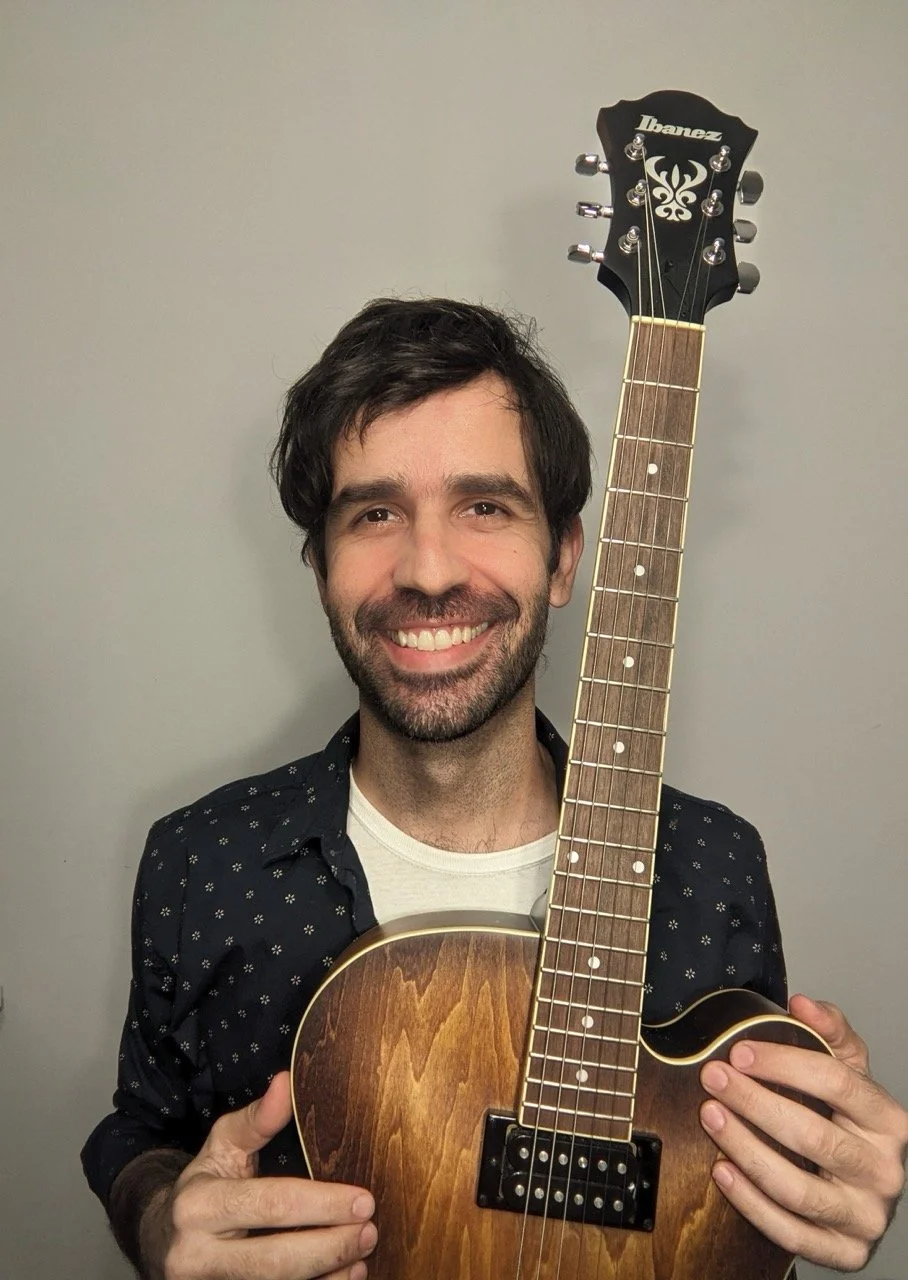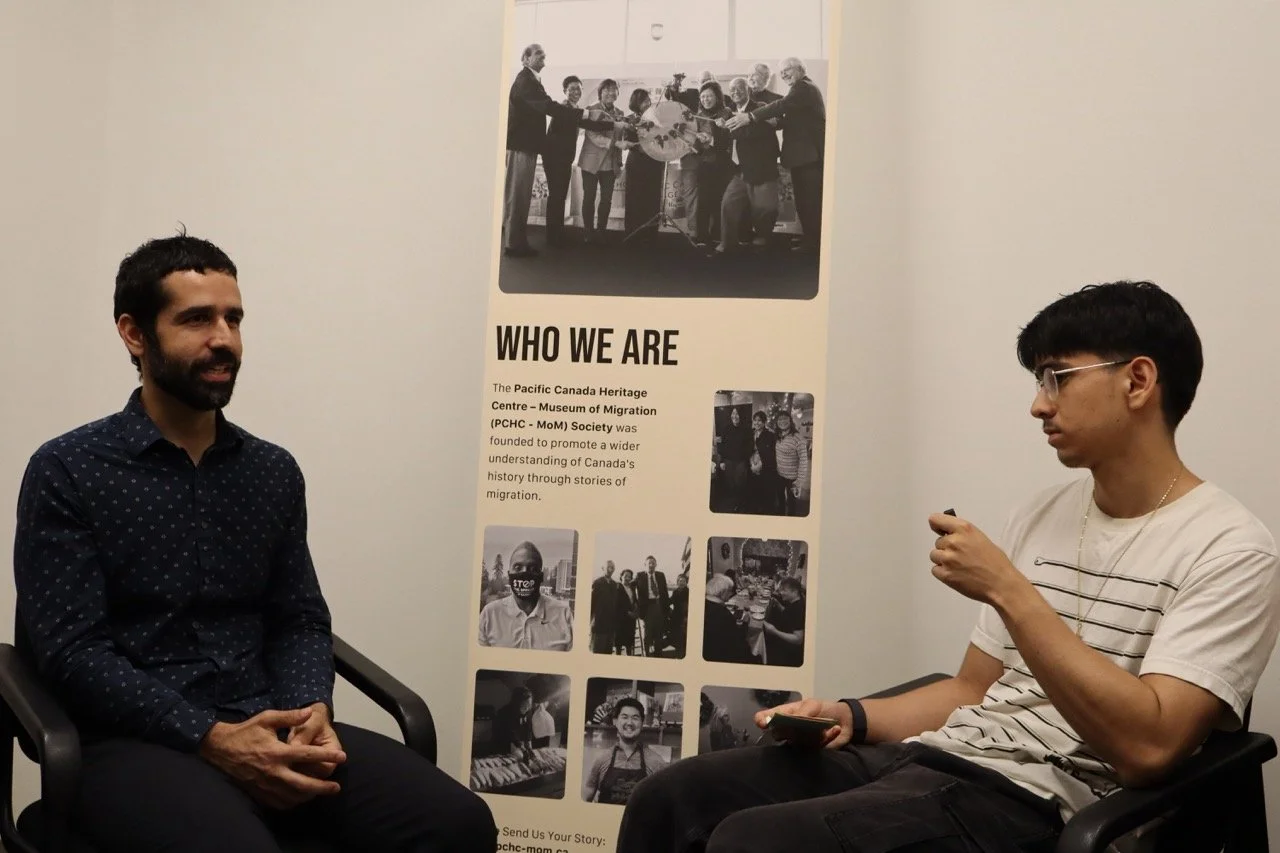Landscape of a Dreamer: An Interview with Luciano Rigobelo
“Performing is about telling a story and sharing an emotion. Even if your song has no lyrics, you can still show emotion in what you are playing.”
A talented Brazilian musician immigrates to Canada and explores the boundaries of music and migration, while adapting to his new home.
Canada is Calling
Luciano Rigobelo’s story is about his immigration journey, cultural identity, and musicianship. He is a professional musician and music instructor from São Paulo, Brazil, a country that is famous for the largest carnival in the world in Rio de Janeiro, the energetic sport called football, and the Amazon rainforest, the lungs of the world.
His brother had immigrated to BC five years earlier, so Luciano had a sense of home that he could rely on while he was adapting.
Although Luciano knew English from studying Language Arts at UNESP (Universidade Estadual Paulista), and consuming films and literature in English, understanding accents in the workplace was challenging for him. Fortunately, Luciano found his footing and with time, managed to feel at home in Canada.
“Canada is a very welcoming place. Even if you're a newcomer, you can always rely on the community. Only by learning the language and understanding the culture, you end up belonging,” he realized.
Musical Beginnings
Luciano’s first musical memories were at the age of seven, when he would mimic his father’s harmonica playing. He grew up surrounded by MPB[1](Música Popular Brasileira) and Bossa Nova[2], two Brazilian genres that would later influence his artistry. At eight years old, Luciano started learning the piano. His zeal to learn more about music was present at an early age, as he would continue to take lessons for six years. The more he played the piano, the more he was interested in discovering music’s boundaries.
At thirteen, Luciano started learning guitar, applying the knowledge he acquired from piano to guitar, which helped him progress faster. His desire to learn guitar derived from him being captivated by its sound; from a jazz album his father owned. His curiosity only amplified in his adulthood, as he would also learn the electric guitar and bass.
Further Endeavours
As the years went by, Luciano would continue to explore music opportunities like songwriting, music recording, and playing with bands.
“Music as a profession means being self-employed — you’re always adapting. You try things that make sense in your environment: recording, writing, performing, teaching. It’s not always easy, but it’s healthy.”
In 2000, he started writing his own music, experimenting with Jazz and Rock. Luciano draws inspiration from an eclectic mix of artists, such as Nirvana, Chico Buarque, Pat Metheny, and Herbie Hancock, as well as Paulo Leminski in terms of lyrical inspirations.
“Eventually, you start writing in a way that mirrors what you read,” he explains. “You begin to find your own voice.”
A key influence Luciano credits for his jazz education is American vibraphonist Gary Burton. After taking a jazz course at Conservatório Souza Lima in São Paulo, he then took an online jazz course by Gary Burton. The course was inspired by Berklee College of Music, and it was a formative experience for Luciano, as he learned about improvisation, theory, ensemble playing, and musical storytelling.
In 2010, Luciano also started playing with bands as a lead guitarist. There, he learned how to fit in a group, how to listen and when to speak.
“Being part of a band is kind of a marriage as well. You see a lot of things in your surroundings. A lot of commitment, acceptance, and finding people that have the same endeavours as you.”
Some of Luciano’s most memorable performances are from playing in Brazil and Canada, alongside Simon Millerd and Dan Reynolds. He could feel the electric energy in the crowd, and how he captivated the audience with his playing.
“When I perform, I think about playing my best but also what message I’m conveying with the song I’m playing,” he emphasizes.
Teaching and Artistic Identity
In the same year that Luciano arrived in Canada, he started teaching guitar as a music instructor. He had previous teaching experience as a music instructor in Brazil, but this was the beginning of his teaching career in British Columbia. This new teaching environment provided Luciano the opportunity to learn and appreciate different cultures from the students he was teaching.
As an educator, Luciano values methodology and connection. “Every student is different,” he says. “You can’t apply the same method to everyone. People have different personalities and ways of learning—it’s about helping them find joy and meaning in music.”
Luciano’s Brazilian identity remains central to his work. Whether through rhythm, melody, or feeling, he carries the soundscape of Brazil into every genre he explores. One of his most personal compositions, Templo do Mar (“Temple of the Sea”), reflects his deep interest in meditation and Buddhism, a religion that he has incorporated into his music ideas.
“Music becomes a reflection of inner life, so combining Brazilian roots with spiritual ideas is my artistic process. I also try meditating every day, because it helps me listen, understand what my goals are, and how to achieve them.”
As of now, Luciano continues to write music; having released three EPs, and one album he recorded with his musician friend Daniel Cancello, “Raiva em Relva”. It is a beautiful instrumental album that encompasses a blend of jazz and rock music.
Granville Island and Busking
In 2022, Luciano began busking at Granville Island—one of Vancouver’s most popular busking locations—to connect with the public and sharpen his live performance skills.
“Every busker must arrive in the morning and draw numbers to decide the order they will perform in,” he explains.
“You pick one of the spots available for you, then you perform for forty-five minutes to an hour, and then go to a different spot.”
The more he performed, the more he grew fond of the interactions with the people passing by. Sometimes they would compliment him on the emotion he conveyed or the lyrics of his music, which motivated him to continue busking.
“Performing is about telling a story and sharing an emotion. Even if your song has no lyrics, you can still show emotion in what you are playing.”
Although he currently focuses more on music education, Luciano still occasionally plays at Granville Island and continues to collaborate with musicians he met through busking.
Looking forward
Luciano’s dedication to studying music has never faltered. He approaches it with the same curiosity and zeal he’s had since childhood. For him, learning never stops — it’s an ongoing process of discovery.
“Every time you learn something new, like a chord or a new harmony, it’s a step up. I always want to learn more, to be touched by music in new ways.”
For aspiring musicians, he offers grounded advice: “Follow your dream but do it in a manageable way. Understand your environment — you might have to take on other jobs to support your art. And that’s okay. What matters is that you keep playing.”
Ultimately, Luciano’s immigration journey reflects how one discovers music’s opportunities while adapting to a new country. When asked to sum up his immigration journey, Luciano references a piece by Pat Metheny: Last Train Home. While the song title sounds melancholic, to Luciano it resembles hope, by embracing your identity and arriving to a place that feels like home. Luciano’s story is one of a musical migration where he shows us music has no borders.
“I try to be present where I am currently. When I’m here, I want to be here. I want to absorb, understand, and be involved. While Brazil is far from me, I still carry Brazil in me — always.
Annotation and Works Cited
[1] MPB is translated from Portuguese to Popular Brazilian Music. It is a ubiquitous genre in Brazil, consisting of rich orchestrations, complex chord progressions, rhythms, or stripped-down production and occasionally electronic elements.
[2] Translated to “New Style” or “New Trend”, this style of Brazilian music combines elements of samba—another popular genre within Brazil—with American traditions.
Granville Island Buskers. 10 August 2025.
MasterClass. Guide to Brazilian Bossa Nova Music: The Basics of Bossa Nova. 2 November 2021. 10 August 2025.
Slater, Russ. What is Brazilian MPB Music? 19 April 2010.
Staff, Site. 25 Fun Facts About Brazil: Surprises You Never Expected. 21 August 2023.



